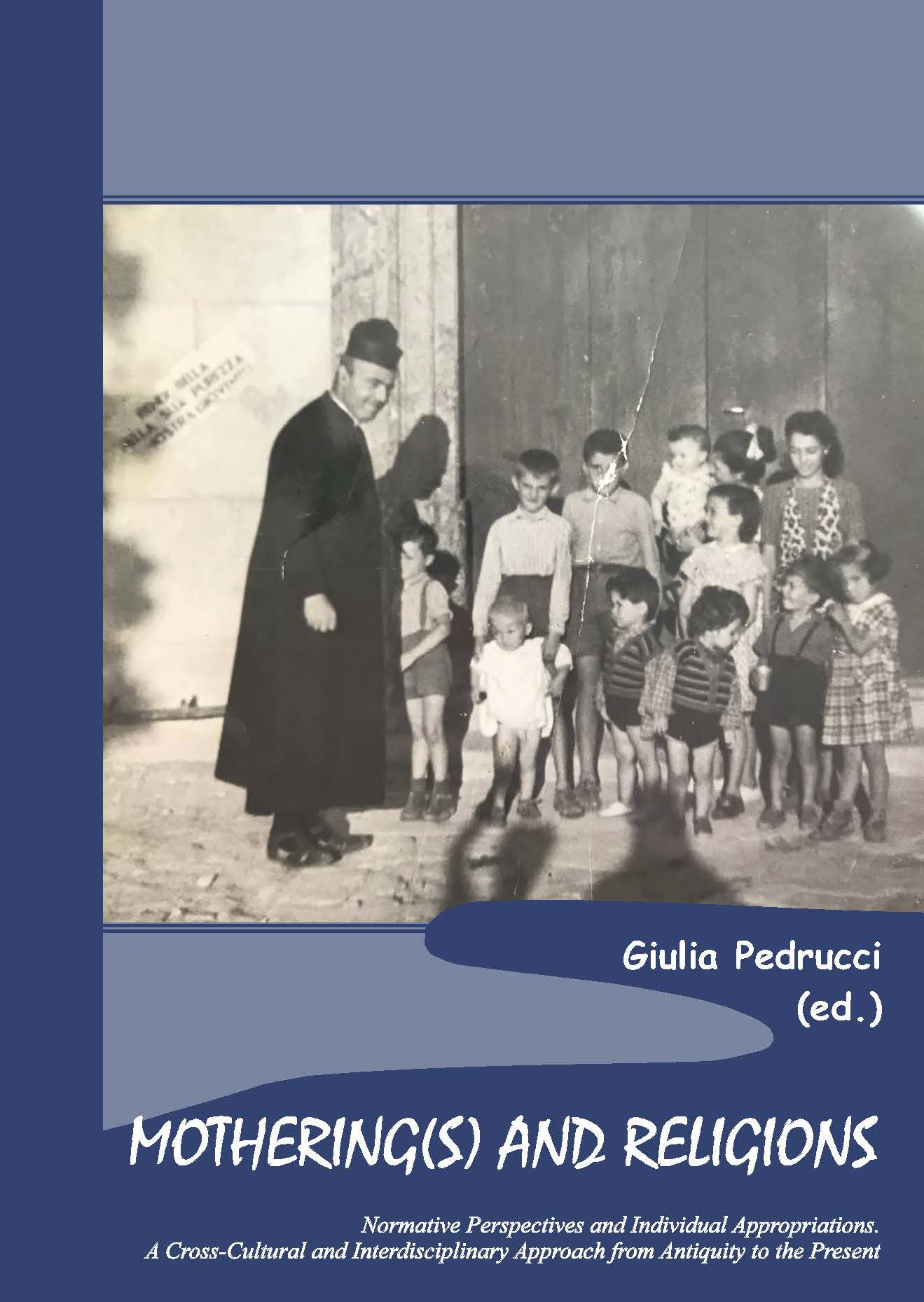MOTHERING(S) AND RELIGIONS: Normative Perspectives and Individual Appropriations. A Cross-Cultural and Interdisciplinary Approach from Antiquity to the Present - Sacra publica et privata 11
Max-Weber-Kolleg (University of Erfurt), 16-17 July 2019
- Anno: 2020
- Autore/i: Giulia Pedrucci (ed.)
- Catalogo: Scienze e Lettere
- Argomento: Storia delle religioni
- Collana: Sacra publica et privata
- ISBN: 978-88-6687-178-1
- ISSN:
How do religions deal with mothering? This is the main question we aimed at answering during the International Workshop Mothering(s) and Religions: Normative Perspectives and Individual Appropriations. A Cross-Cultural and Interdisciplinary Approach from Antiquity to the Present at the Max-Weber-Kolleg (University of Erfurt). The chief focus is on the religious roles of the “mother” in the child’s life after the perinatal phase and until adulthood, as well as on the less fortunate cases in which the offspring dies before becoming adult. While the first two workshops dealt with physiological functions that only a woman – mother-to-be or newly mother – can perform, this third workshop stresses that the rearing of a child shifts the focus from biology to society. Therefore, it is necessary to define what “mother” is: a “mother” is anyone who engages in maternal practice and makes this a central part of their life. Mother can, thus, be gender-inclusive.
TABLE OF CONTENTS
Mothering(s) and Religions: Reciprocal Influences. An Introduction
Giulia Pedrucci
FIRST SECTION
MOTHERHOOD AS AN INSTITUTION VS MOTHERING AS A PRACTICE
NORMATIVE PERSPECTIVES ON MOTHERING
Cornelia, the Most Conservative and Transgressive Mother of the Roman World
Cristina Soraci
The Ideal Hindu Mother: Cultural Expectations and Changing Mothering Practices
Sucharita Sarkar
Manifestazioni di dolore per le morti infantili, tra fonti letterarie ed epigrafiche di età imperiale
Silvia Aglietti
Mujeres y madres fundadoras de mezquitas en al-Andalus: revisión del mecenazgo femenino en la Córdoba omeya (Mad?nat Qur?uba, años 756-1031)
Carmen González Gutiérrez
MOTHERING AS A PRACTICE: FIELDWORK
Les mères marocaines et la transmission des valeurs religieuses à leurs enfants: Meknès et Ouarzazate comme étude de cas
Saddik Darai and Jaouad Agudal
Theotokos, Mother of the Humankind, and Matushka, Mother of the Parish. Two Models of Motherhood in the Teaching and Practice of the Orthodox Church in Poland
Kaja Kojder
SECOND SESSION
NEGOTIATION, PLURALISATION, AND SPIRITUALISATION OF MOTHERING
The Function of the Mother/Teacher in the Ascetic Contexts of Eastern Christianity in Late Antiquity: Between Tradition and Innovation
Claudia Tavolieri
Religion and Nationhood: Making of Bharat Mata (Mother India)
Priyanka Jha
The Mothering Path as Buddhist Path: Narratives in the P?li Canon
Pascale Engelmajer
THIRD SESSION
CHILDREN’S PRESERVATION
“Madri” in ansia. Ghellò a Gela
Claudia Lambrugo
Mothering in Etruria. Religion and Ritual Practices
Chiara Pizzirani
Mater semper certa est? Nuove proposte interpretative a proposito dei votivi rappresentanti adulti con bambini dal Lazio antico e dall’Etruria meridionale
Giulia Pedrucci
FOURTH SESSION
“TRANSGRESSIVE” MOTHERING: DOES URBAN SPACE MATTER?
“Neo-pagan” Construction of the Conception of Motherhood in Central Italy: Rejection of Traditional Religion or New Vision of the World?
Giovanni Frulla and Roberta Gambella
Mothers Killing their Children in Italian Alps
Michela Zucca
City, Motherhood, and Parenthood in the Ideal Politeia in Plato and the First Stoics: The Problem of Oikei?sis and Later Developments in Stoicism and Early Christianity
Ilaria Ramelli
The Author: Giulia Pedrucci is adjunct professor for Religious Studies at the University of Verona. She was Marie Sk?odowska Curie Cofund Fellow at the Max-Weber-Kolleg für kultur- und sozialwissenschaftliche Studien (University of Erfurt); she is currently a Gerda Henkel Scholar.
F.to 17x24, pp. 296, brossura Filo refe, Ill. B/N



